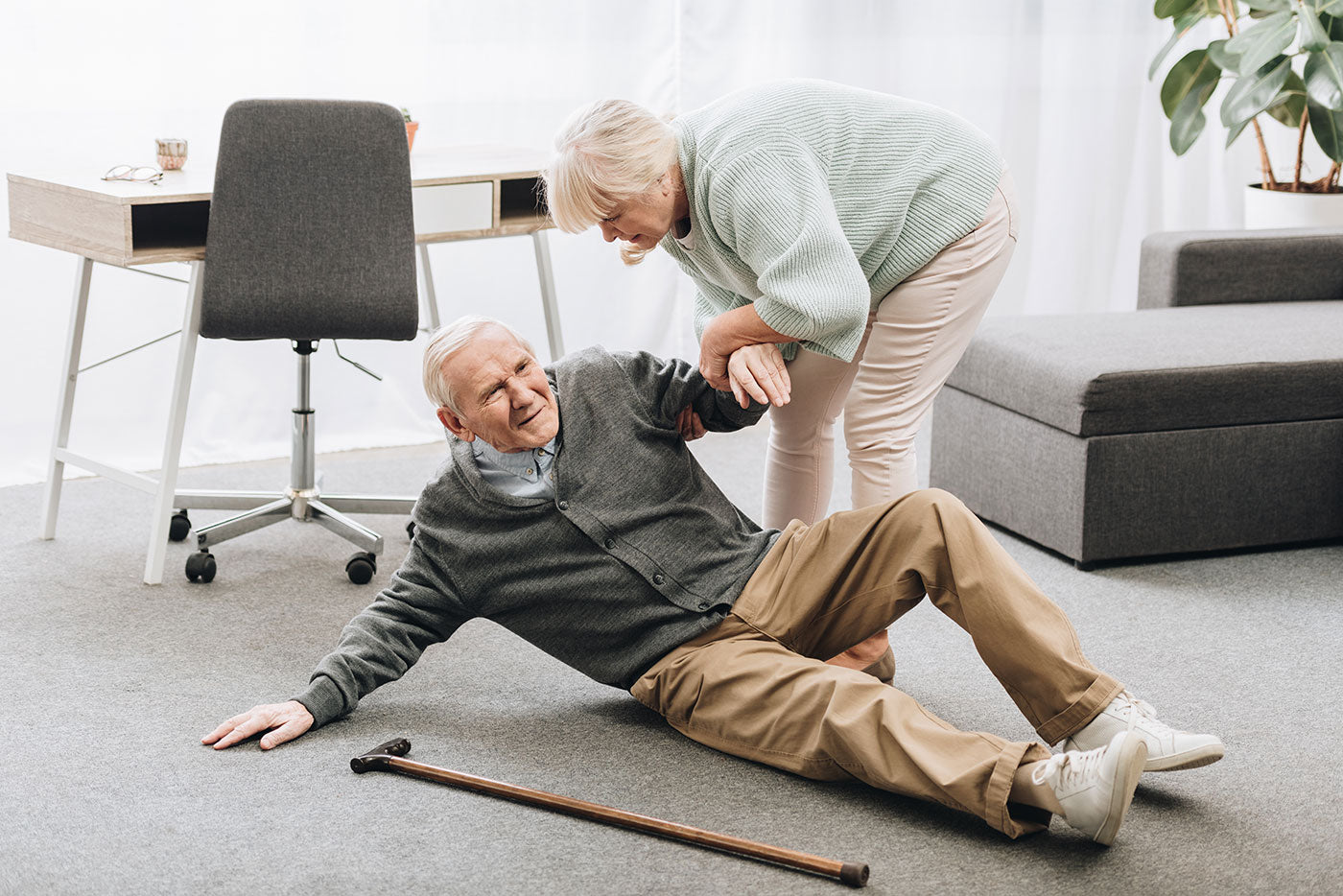
Advice for Older Adults to Prevent Falls You must Know
Approximately 35% of all falls every year affect persons aged 65 and older. Injuries from falls are the leading reason of death and hospitalization among people of this age.
Bruises, broken bones, and brain trauma are often sustained during falls. Falls pose more than just the risk of physical injury, though. Older adults may get more anxious as a result of these incidents.
Why do elderly people stumble and fall?
Finding out what causes falls in the very first step is the key to preventing them.
1. Balance and Gait
Concentration, stability, and mobility all decline with aging. The likelihood of falling rises with this condition, which is often brought on by a lack of physical exercise.
2. Vision
As one gets older, there is less light that is able to enter their retina. Since this is the case, it becomes more challenging for seniors to spot potential trip risks, such as obstructions or edges.
3. Medications
It's likely that you now require medicine more regularly than you did when you were younger. Unfortunately, several of these drugs interact negatively with one another, induce vertigo and exhaustion, or both. Because of these factors, accidents involving falling are possible.
4. Environment
Although a normal house design could be risk-free for most people, this might not be the case for the elderly. Falls are more likely to occur in certain layouts if they are not improved for seniors.
5. Chronic Conditions
Eighty-five percent of those aged 65 and over are coping with at least one chronic health issue.
Many chronic diseases, such as gout, dementia, and diabetes, are associated with a higher risk of falling because of the impairment in mobility, discomfort, and reduced activity they might bring about.
How to Prevent Falls ?
It's helpful to know that there are precautions you could take to avoid falling. In this article, we'll discuss some tried-and-true strategies for avoiding falls, so that you can take safety measures at home and during your walking hours.
1. Get More Exercise

Exercising regularly is essential for maintaining healthy muscles. Exercises that emphasize balance, flexibility, and endurance will provide the most good for your bones, tissues, and tendon.
Bone density and the prevention of osteoporosis are two additional benefits of daily workouts.
Falls prevention exercise classes for seniors are available at many local recreation facilities, health networks, and private fitness studios.
A personal therapist could help you assess your risk for injury and provide recommendations for exercise regimens and supportive equipment.
Click to Read: What sports are suitable for the elderly?
2. Check Your Diet

Consuming the proper meals is another strategy for maintaining bone health. A balanced diet, especially one rich in vitamin D and minerals, might be of assistance. Click to learn more about healthy eating
Furthermore, staying away from hazardous behaviors like alcohol usage and cigarettes can help keep your bone mass up and reduce the risk of bone fracture in the event of a fall.
3. Talk to Doctor

A greater number of medications, as we said before, raise the probability of a fall. Fainting, tiredness, disorientation, and fatigue are common negative reactions to medicine.
There's a chance you'll have to use the restroom more often. The doctor thus should be consulted if you experience any unwanted effects from your prescribed drugs. They might give you advice on safer choices.
4. Get Enough Rest
Make sleep a daily priority and aim for at least eight hours. Anxiety, sluggishness, and impaired awareness of one's surroundings are all possible side effects of insufficient sleep.
The danger of falling rises further because of the impairment of reflexes and reaction time. Take a seat or lay down for a while to rejuvenate when you already feel tired. If you have poor sleep quality, see here to improve your sleep.
5. Avoid Walking After Drinking
Alcohol impairs not just your reflexes and coordination, but also your peripheral vision, equilibrium, and perception.
It also raises the risk of injury from falls due to misjudged footing. The danger of falling and being hurt increases even more when used with some drugs.
6. Wear Appropriate Shoes
The risk of a fall rises if you wear shoes that are too loose, too large, or too steep. When you're wearing high heels, for example, you have to walk more gingerly and are more likely to stumble.
Fortunately, this is among the easier issues to resolve. Select a pair of slip-resistant and lace-up shoes with chunky heels and non-slip soles.
7. Clean up clutter.
Maintaining a clean and orderly house is one of the best ways to lessen the risk of injury from falls. Get rid of the piles of outdated newspapers blocking your halls and stairwells. Home fittings are often the cause of slips and falls, which may lead to back discomfort and other ailments.
Check all the rooms and corridors to see whether there's anything out of places, such as a sagging carpet, a slick throw rug, or a protruding floorboard. Then you may fix, get rid of, or replace them to improve the safety of your home.
8. Be Cautious on Wet or Icy Surfaces
Everybody has a fall on icy sidewalks once in a while. Yet, as we become older, the danger of slipping on these icy surfaces rises, so you should make sure that the steps and pathways you use are dry and clear of ice and pools before you use them.
During icy weather, it's important to wear shoes with good traction. In addition, even if you need to shop for necessities, don't go out in the rain or snow, and instead take use of grocery delivery services.
9. Light It Right
If you want to avoid moving into an assisted living center and enjoy your retirement years at home, you need to make sure your house is as secure as possible for daily activities.
Poor illumination is really a big risk factor. Light up the dark spots in your house, including the stairwell and the hallway, with more powerful lights.
The goal is to improve nighttime visibility around the home, so make absolutely sure you have quick and easy access to lights when you wake up.
10. Walking Assistance
Make use of a walking aid if you feel unsteady on your feet. A fall may be avoided with the use of a cane or walker if used properly.
If your doctor prescribes the use of a walking stick or rollator walker, get one that fits you well and has wheels that are easy to use.
This is especially crucial while traversing unfamiliar terrain or walking on rough sidewalks. A Physiotherapist can assess your needs and educate you on how to properly utilize any assistive gadgets.

11. install Grab Bars and Handrails
The next step is to install sturdy railings in those rooms where you spend the most time. Bed rails offer support to you when you go to bed and wake up.
To make using the bathroom safer, put up toilet safety rails on both sides of the toilet and think about getting a hand-held showerhead and a bench to sit on while washing.

Ending
Even if the probability of falling rises with age, there are measures that may be taken to reduce this danger. Fall prevention is an important part of safety efforts for the elderly.
We hope that the advice presented here will help you avoid injuries that might prohibit you from participating in the activities you like.
Recommend Products
-
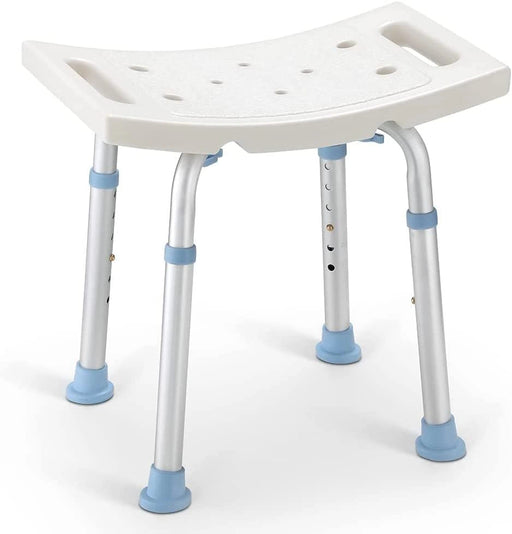 Sale
Sale
Standard - 300LBS Capacity Shower Stool
Original price $51.99From Original price $28.99Original price $51.99Current price $28.99From $28.99Current price $28.99OasisSpace Medical Square Shower Stool for Bathtub OasisSpace Square Shower Stool for Bathtub is approved as the highest standard(FDA) for medical...
View full detailsSaleOriginal price $51.99From Original price $28.99Original price $51.99Current price $28.99From $28.99Current price $28.99 -
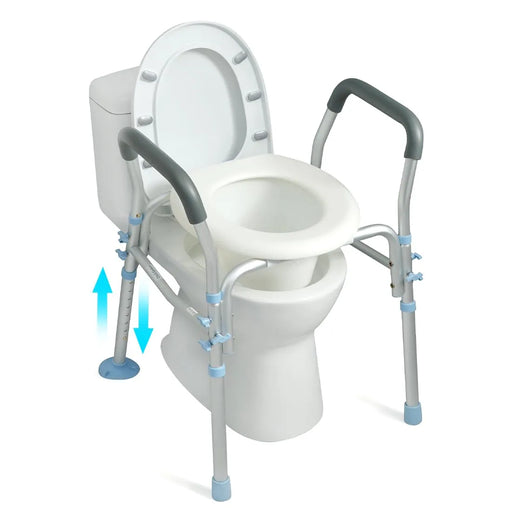 Sale
Sale
300LBS Capacity Raised Toilet Seat with Arms
Original price $120.99From Original price $69.99Original price $120.99Current price $69.99From $69.99Current price $69.99OasisSpace Raised Toilet Seat with Arms - Safe and Convenient OasisSpace Raised Toilet Seat with Arms provides stable support for users to sit dow...
View full detailsSaleOriginal price $120.99From Original price $69.99Original price $120.99Current price $69.99From $69.99Current price $69.99 -
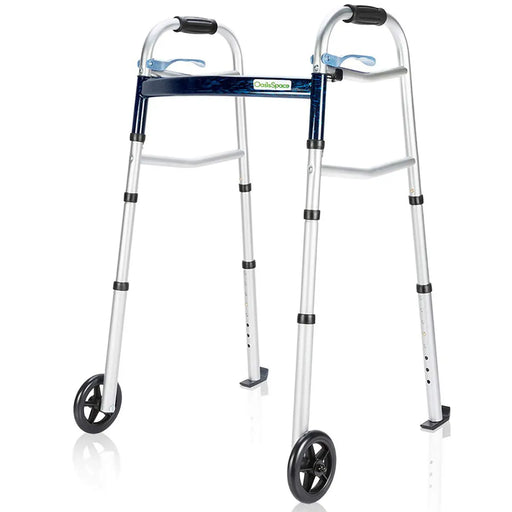
350LBS Capacity 2 Wheel Walker
From Original price $39.99Original price$39.99From $39.99Current price $39.99Product Advantages OasisSpace's 350LBS Capacity walker offers a fusion of lightweight design and sturdy support, crafted from high-grade anodized ...
View full detailsFrom Original price $39.99Original price$39.99From $39.99Current price $39.99 -
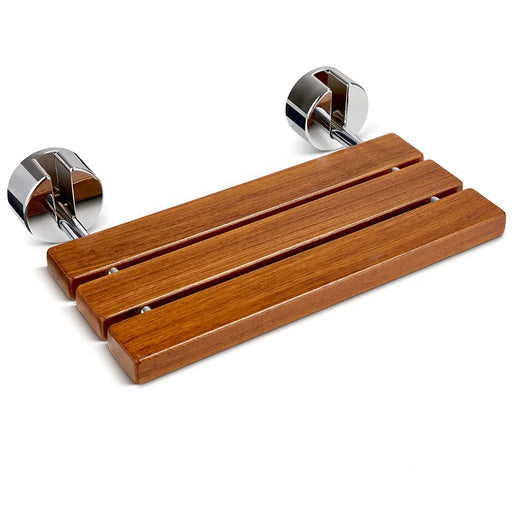
Wall Mounted - 400LBS Capacity Teak Folding Shower Seat
From Original price $131.99Original price$131.99From $131.99Current price $131.99Advantages OasisSpace Teak Wall-Mounted Shower Seat adopts a folding design, which can save space to the greatest extent and can be folded up at a...
View full detailsFrom Original price $131.99Original price$131.99From $131.99Current price $131.99 -
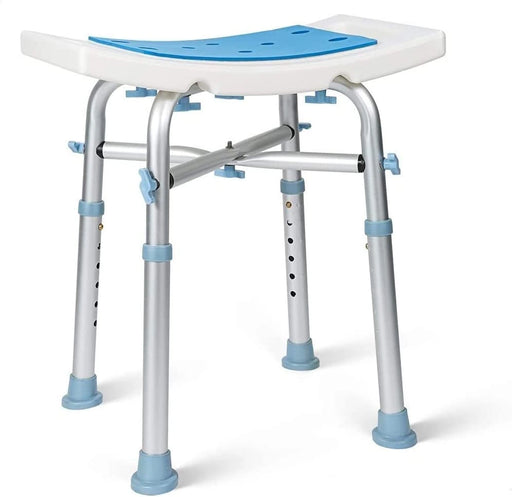 Sale
Sale
Padded & Bariatric - 500LBS Capacity Heavy Duty Shower Stool
Original price $57.99From Original price $36.99Original price $57.99Current price $36.99From $36.99Current price $36.99OasisSpace Medical Heavy Duty Bariatric Shower Stool OasisSpace Medical Heavy Duty Bariatric Shower Stool is approved by the FDA, which is the hig...
View full detailsSaleOriginal price $57.99From Original price $36.99Original price $57.99Current price $36.99From $36.99Current price $36.99 -
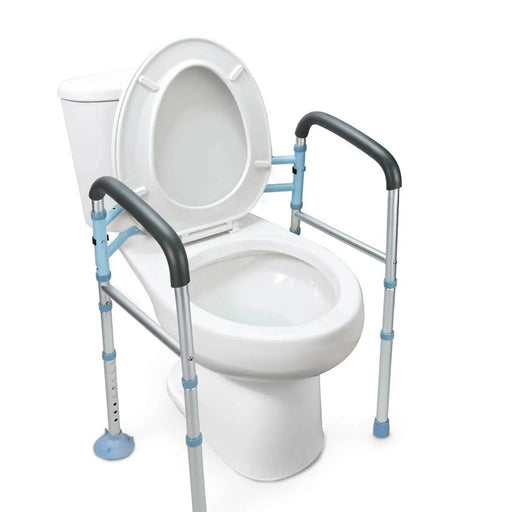 Sale
Sale
300LBS Capacity Stand Alone Toilet Safety Rail
Original price $69.99From Original price $44.99Original price $69.99Current price $44.99From $44.99Current price $44.99OasisSpace Toilet Safety Rails - Fit Any Toilet OaisSpace stand-alone toilet safety rails provide sturdy support for the elderly and people with ...
View full detailsSaleOriginal price $69.99From Original price $44.99Original price $69.99Current price $44.99From $44.99Current price $44.99







